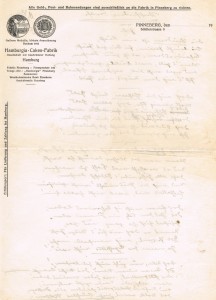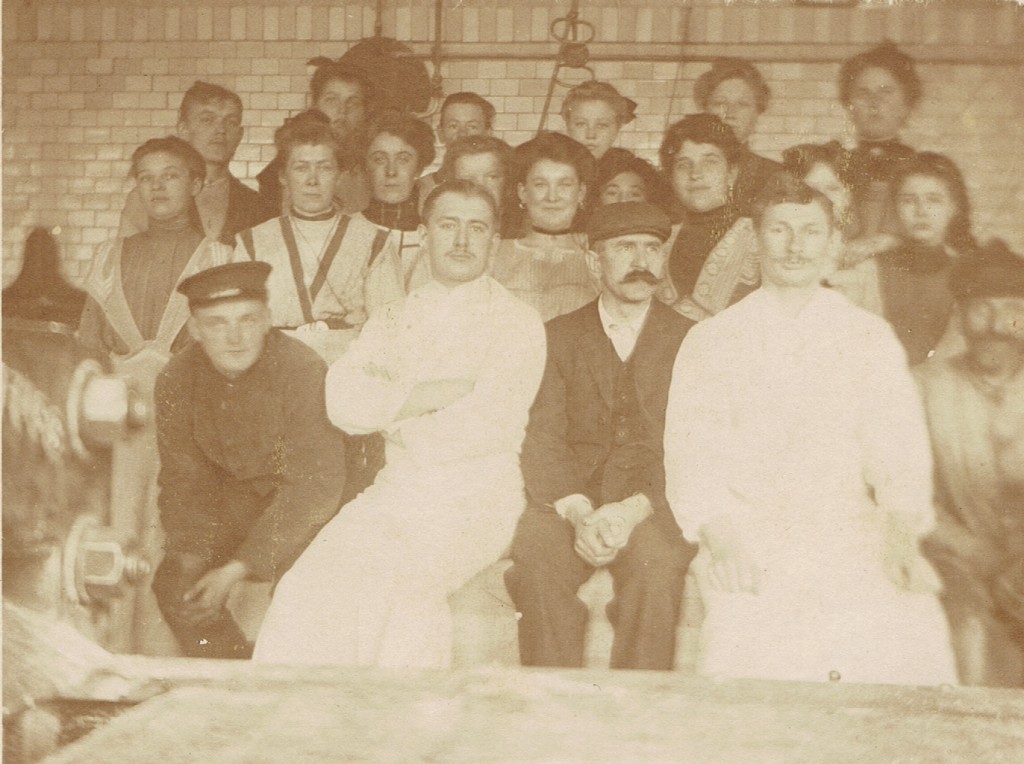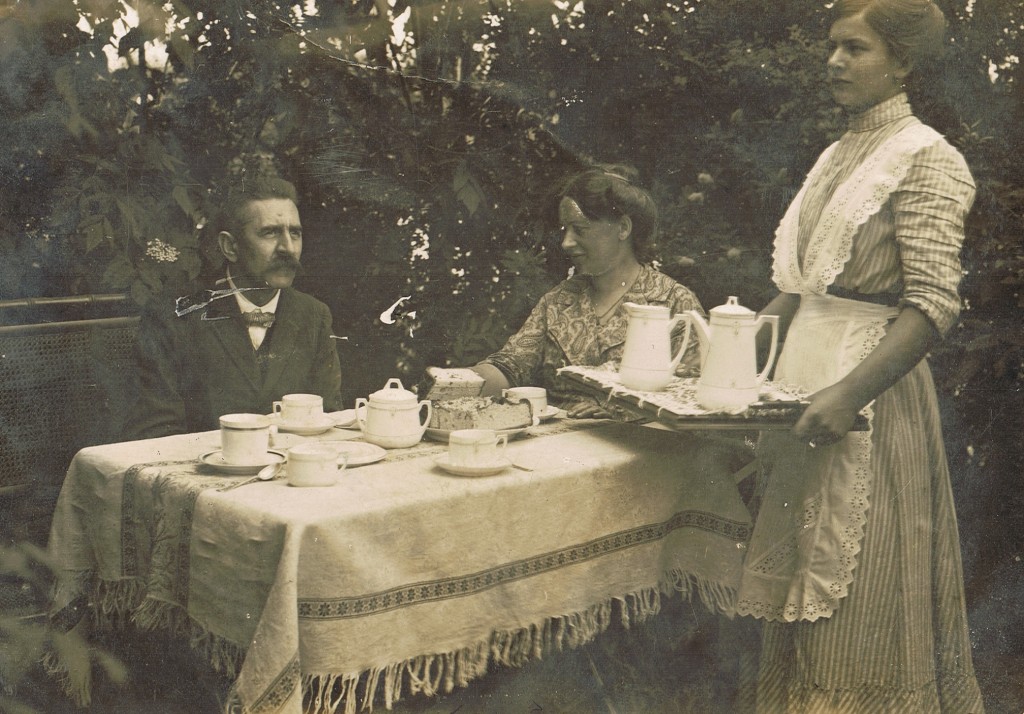Captain Josef Kolbe left the Austro-Hungarian army on 1 March 1911, after which his ranks were always qualified by “in retirement”, even while on active service during the First World War, and his service as “for the duration of mobilisation”, labels he came to regard as stigmas and a block to further advancement.
A well connected person must have recommended him for the post of director of the Hamburgia-Cakes-Fabrik, a biscuit factory situated in the town of Pinneberg to the north-west of Hamburg. So this is where he took his bride in September 1911. If the well-travelled Josef Kolbe soon made acquaintances in Germany, his more homely wife probably found it more difficult, although she must have made one friend, Käthe Strempel, who became godmother to one of the Kolbe children. By September 1912 Emilie was back in Fogarasch in time for the birth of the couple’s first child, a daughter named Ilse, who would become my mother.
 |  |  Pinneberg? c1912 |
Whether it was because Josef Kolbe was not cut out to be a factory manager or whether neither he nor Emilie was able to adapt to life in a cold, damp, north German city, by September 1913 the family of three was living in the countryside of Lower Austria, where Josef Kolbe had grown up and gone to school.
